

KENNESAW, Ga. | Dec 21, 2022
Researchers across Kennesaw State colleges look to solve problems, whether they exist on a local, national, or global scale.
From alleviating a tropical disease to understanding forces shaping world politics or creating safer roads, University faculty delve into issues from around the globe, often providing unique research experiences to their undergraduate and graduate students in the process.
“KSU is on an upward trajectory toward becoming one of the top R2 institutions in the nation with a focus on conducting research with relevance in all disciplines,” said Phaedra Corso, vice president for research. “With students and faculty conducting research abroad, the University is increasing the ability to cultivate and sustain an environment where research can deliver impactful, relevant solutions to economic and societal challenges across the globe.”
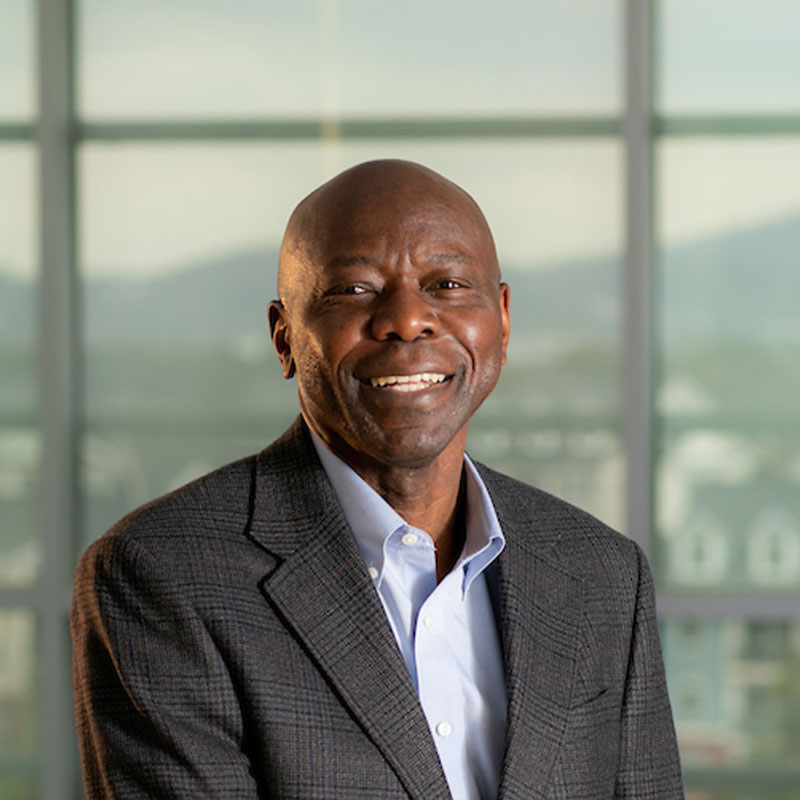
Kojo Mensa-Wilmot has been studying the microbial parasites that cause fatal diseases in humans and animals for years, with the ultimate goal of developing drugs to save lives.
A professor of molecular and cellular biology and dean of the College of Science and Mathematics at Kennesaw State, Mensa-Wilmot earned his Ph.D. in DNA replication at Johns Hopkins University. It was there that he first set about creating therapeutics for human African trypanosomiasis, also known as sleeping sickness, a fatal parasitic disease often spread by tsetse flies.
“I grew up in Ghana, where diseases like sleeping sickness and malaria are common," Mensa-Wilmot said. “After I finished my Ph.D. I realized I wanted to do something with impact, something that could help a lot of people.”
Mensa-Wilmot has spent 14 years focused on searching for new treatments for sleeping sickness. In his current stage of research, supported by a $3.3 million National Institutes of Health (NIH) grant, he and fellow researchers replicate the DNA of the parasites that cause the disease in order to develop new drugs to kill those parasites.
In time, Mensa-Wilmot said, his research can have applications in tropical settings throughout the world. The prospect of bringing viable therapeutic drugs to hundreds of millions of people in Africa, tropical Asia, and South America keeps Mensa-Wilmot engaged through his work as researcher, professor, and dean.
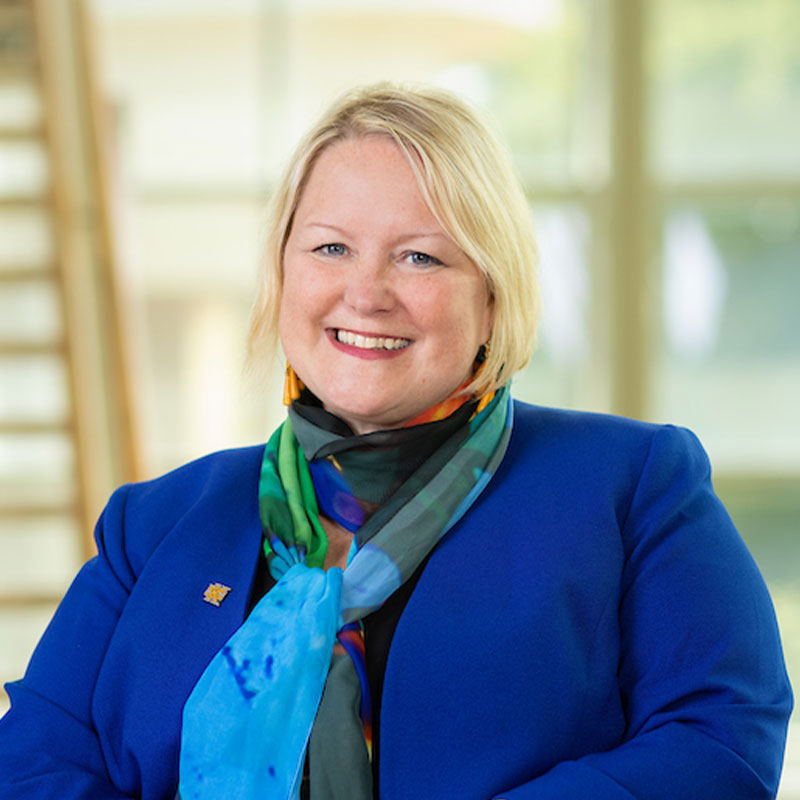
Wellstar College Dean Monica Swahn has been on her current research path for more than a decade, exploring ways to blunt the ill effects of alcohol and risk-taking behavior among adolescent girls and young women in sub-Saharan Africa.
Earlier this year, Swahn received a five-year grant worth $3.3 million from the National Institutes of Health for a project that will teach vocational skills to young women and girls in Kampala, the capital of Uganda. She calls it the TOPOWA Project, using a Ugandan word that translates to “never give up,” and says success in the study could have an impact on similar populations in the U.S.
“We have huge hopes that we’ll show that the vocational training provides job skills and uplifts youth from poverty, and it could just be a bonus that it might impact their mental health as well,“ she said. “We don’t know the effects yet because we’re just starting the project, but preliminarily, this is a very promising strategy.”
Recently, as part of Dr. Swahn’s global health priorities to strengthen research and capacity building in East Africa, KSU nursing professor Christie Emerson and health promotion and physical education professor Kandice Porter joined Swahn on a trip to Kenya to begin work on a new mental health project. The interdisciplinary and interprofessional aspects of the trip represent the future of academic research, she said, and she’s happy to open that door to faculty, staff, and students.
“As faculty we have a wonderful opportunity to lead the way in terms of interdisciplinary and international partnerships,” she said. “I feel like my own work represent that, and I want to encourage our other faculty to engage in similar partnerships. I think that is the future.”
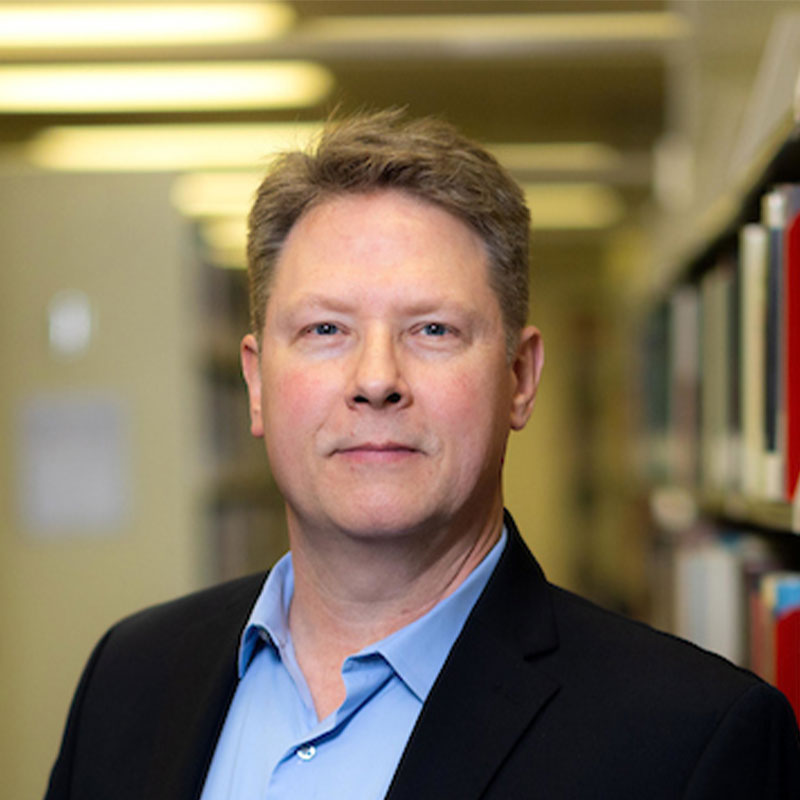
Thomas Rotnem, professor of political science and associate director of the School of Government and International Affairs in the Norman J. Radow College of Humanities and Social Sciences, has been conducting research in Russia since the mid-1990s. For the past dozen years, he’s been focused on the Russian government’s “vigorous approach” to development in the Arctic.
According to Rotnem, while the war in Ukraine has been devasting for Ukrainians, it has also unleashed significant damage on the Russian economy. He says that the Kremlin sees establishment of Arctic infrastructure, including railroads, coal and diamond mines, and oil and gas terminals, as its main option to expand its economy.
“This research importantly will delineate the costs — financial, societal, and environmental — of these huge infrastructure developments and their impact upon the wider Arctic area,” Rotnem said.
To support his research, Rotnem received a scholarship in 2021 from the Kennan Institute, and in March, a $15,000 grant from the National Council on Eurasian and Eastern European Research.
The development projects in the Arctic bring critical environmental and human security concerns both inside and outside Russia, Rotnem said. The projects could damage the pristine Arctic regions, blackening snow with coal ash, threatening to accelerate an already diminishing permafrost, increasing oil spills, and changing life for people living in the region.
While its invasion of Ukraine has turned Russia into a pariah in much of the world, the nation will remain focused on its Arctic projects, Rotnem said, because of their importance to strengthening its economy in the long-term.
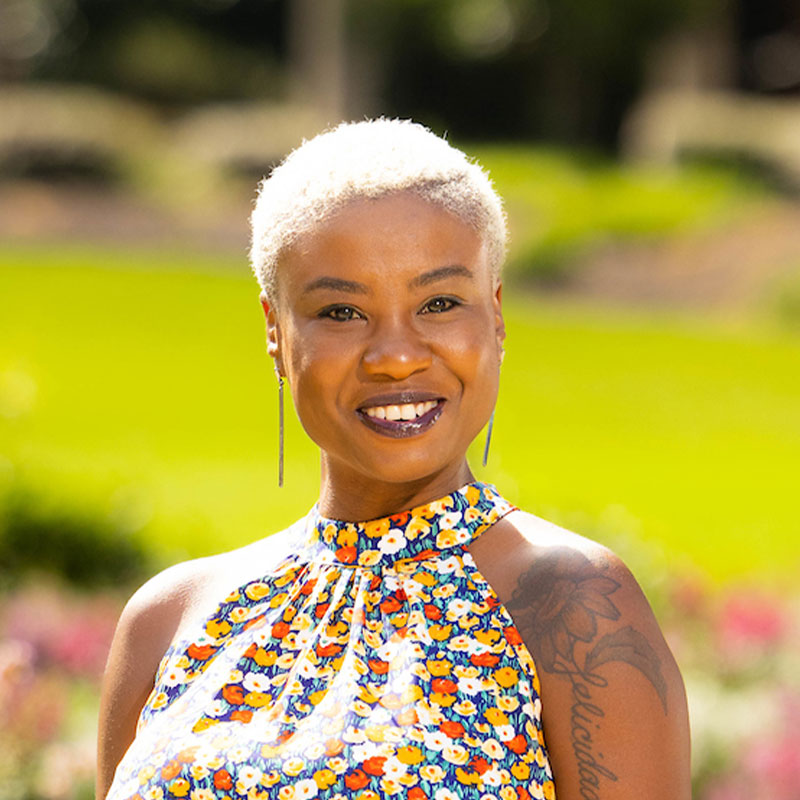
Luciane Rocha said bearing witness to violence and grief in her native Brazil led her to her calling and the research she continues today into the rise of women empowerment organizations in the country.
“I’ve seen how the violence affected the lives of Black women,” Rocha said. “Many could not attend work or had to leave early or arrive late because of curfews and crossfires. Some of them had relatives killed either by the police or drug dealers.”
Rocha, who joined KSU in 2019 as an assistant professor in the Interdisciplinary Studies Department of the Radow College, earned an undergraduate degree in social sciences from the Federal University of Rio de Janeiro, where she also earned a Ph.D. in anthropology, before conducting doctorate and postdoctoral research in the U.S., the United Kingdom, and Brazil.
Rocha travels to Brazil to work with mothers of children killed by drug violence and police brutality, a common occurrence that often disproportionately affects poor and Black communities.
Since 2011, Rocha has been working with the Network of Communities and Movements Against Violence in Rio de Janeiro. She supports mothers of people killed by violent crime, poring over police reports, attending trials, and amplifying the mothers’ voices inside and outside of academia through writing and speaking engagements.
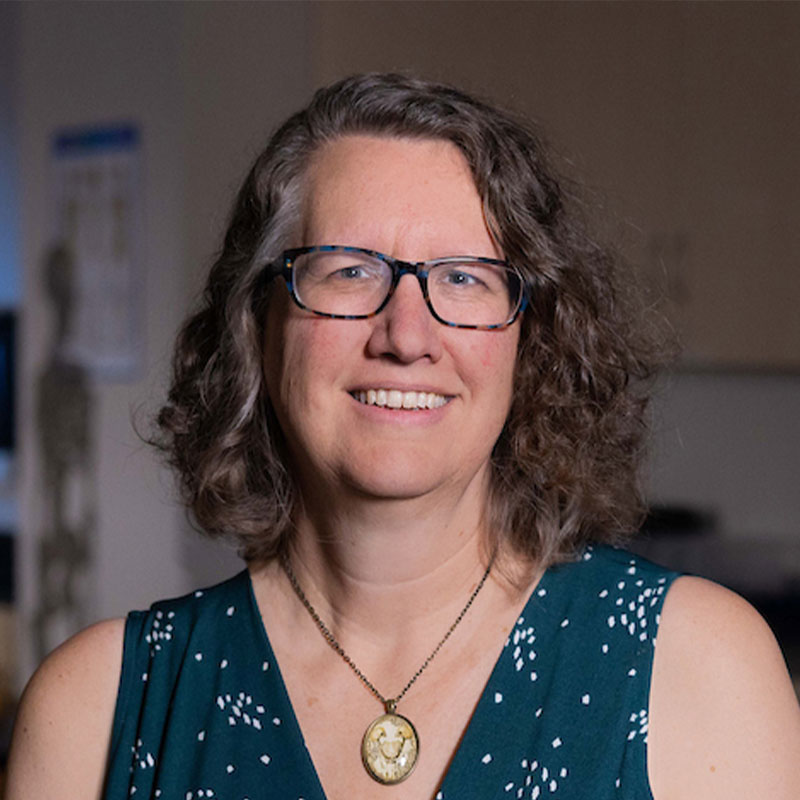
Susan Kirkpatrick Smith, associate professor of anthropology in the Radow College, said the lives of ancient people provide valuable insights for people living today.
“It’s important and beneficial for us to connect with people from different times and places,” Smith said. “It can help us recognize and understand that people in the past dealt with things that we’re dealing with today and perhaps help us humanize each other rather than demonize each other.”
Smith has been studying the ancient people of Crete, Greece, since 2007 — three years after she joined KSU’s faculty.
This summer, Smith again traveled to Crete to unearth, piece together, and analyze the skeletons of children and adults from the Roman period, dating back to the fifth to seventh centuries, CE. In her work, Smith analyzes bones and teeth to explore the diets and afflictions of ancient people of the area.
Smith typically brings a small group of students to the country to help with the research and learn to piece together, inventory, and assess sex, age, and pathologies of the skeletons for themselves. She partners with The Institute for Aegean Prehistory Study Center for East Crete and the Greek Archaeological Service.
“The work can be challenging and tedious,” Smith said. “Multiple people are often buried in the same grave. Nevertheless, putting those puzzles together is important. It’s like having 10 jigsaw puzzles with a third of the pieces missing, and then you mix them together. And you’re combining it with a mystery, trying to figure out what happened.”
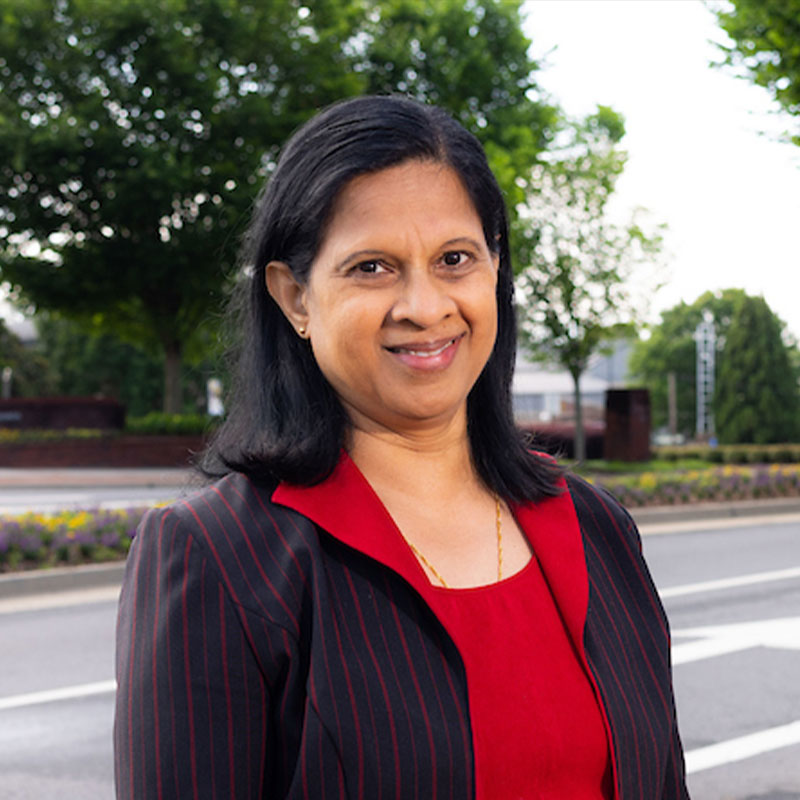
Sunanda Dissanayake was drawn to the field of civil engineering because of its importance to daily life and has focused her research on topics such as traffic engineering, highway design, and applications of big data in transportation.
Her research always tries to balance making traffic flow more efficiently with the greatest level of safety, Dissanayake said. She has studied transportation issues in the United States, China, and her native Sri Lanka.
“Each country has unique traffic challenges,” said Dissanayake, chair of the Department of Civil and Environmental Engineering in Kennesaw State’s Southern Polytechnic College of Engineering and Engineering Technology. “In the United States, we are a vehicle-dependent society with mainly cars and trucks on the roadways. In other countries like Sri Lanka and China, there is a mix of vehicles like motorcycles, public transportation, trucks, and others, as well as pedestrians and bicyclists, who often don’t have lanes to follow.”
Dissanayake is currently researching traffic problems from the viewpoints of different groups, noting that solutions that may work for older drivers may not work for younger drivers. While she focuses on finding balance between traffic operations and highway safety, she enjoys interacting with students.
“There aren’t many females in engineering leadership positions, and I’m honored to serve as a role model for students as department chair, but also as a professor, a researcher and mentor,” Dissanayake said.
This feature was published in the Summer/Fall issue of Kennesaw State University Magazine.
– By Abbey O'Brien Barrows, Thomas Hartwell and Dave Shelles
– Photos by David Caselli and Jason Getz
A leader in innovative teaching and learning, Kennesaw State University offers undergraduate, graduate, and doctoral degrees to its more than 51,000 students. Kennesaw State is a member of the University System of Georgia with 11 academic colleges. The university's vibrant campus culture, diverse population, strong global ties, and entrepreneurial spirit draw students from throughout the country and the world. Kennesaw State is a Carnegie-designated doctoral research institution (R2), placing it among an elite group of only 8 percent of U.S. colleges and universities with an R1 or R2 status. For more information, visit kennesaw.edu.